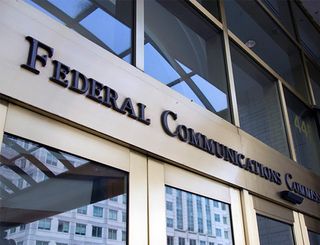AWS-3 $10 Billion Reserve Met in FCC Auction

Round 14 in the AWS-3 auction is over and the bidding total stands at $14,176,437,300 for 1,303 of the 1,614 licenses available.
The FCC has officially popped the champagne, announcing that the reserve price for the largest block of spectrum has been met—which actually happened in round 13.
"At the conclusion of Round 13, the provisionally winning bid amounts, net of any applicable bidding credit discounts, for the paired 1755-1780/2155-2180 MHz licenses (the licenses in Blocks G, H, I, and J) exceeded $10,0660,326,600, thus meeting the aggregate reserve price for these licenses in Auction 97," the FCC said.
The auction looked like it was not pausing to toast the milestone, with almost $2 billion bid in round 14—there are 70 qualified bidders including AT&T, Verizon and T-Mobile—and over 700 new bids.
The AWS-3 auction may now officially be a success, or at least a partial one, but it won't be over until there are no bids or bid waiver requests in a round for either the paired or unpaired spectrum. It was not clear whether the $580 million reserve for the 15 MHz of unpaired spectrum had yet been met.
The more money the FCC raises in this auction, the less it has to use from the broadcast incentive auction to pay for the FirstNet interoperable broadband network, advanced 911, R&D, and deficit reduction.
The Telecommunications Industry Association, which represents the manufacturers of those wireless nets that will be using the spectrum to build out, already had the toast poured. "[TIA] is pleased that bids in the FCC’s ongoing auction of AWS-3 spectrum have exceeded the $10 billion reserve price for 50 MHz of paired spectrum," it said.
Broadcasting & Cable Newsletter
The smarter way to stay on top of broadcasting and cable industry. Sign up below
"The successful outcome of this auction will help mitigate the effects of the spectrum crunch caused by exploding consumer demand for mobile broadband," said TIA. "The auction will also provide significant funding towards the construction of FirstNet, the new national public safety broadband network. Moreover, the 1755-1780 MHz and 2155-2180 MHz bands are globally harmonized, allowing manufacturers to build wireless devices at lower cost while also potentially permitting international roaming more easily."
Contributing editor John Eggerton has been an editor and/or writer on media regulation, legislation and policy for over four decades, including covering the FCC, FTC, Congress, the major media trade associations, and the federal courts. In addition to Multichannel News and Broadcasting + Cable, his work has appeared in Radio World, TV Technology, TV Fax, This Week in Consumer Electronics, Variety and the Encyclopedia Britannica.

